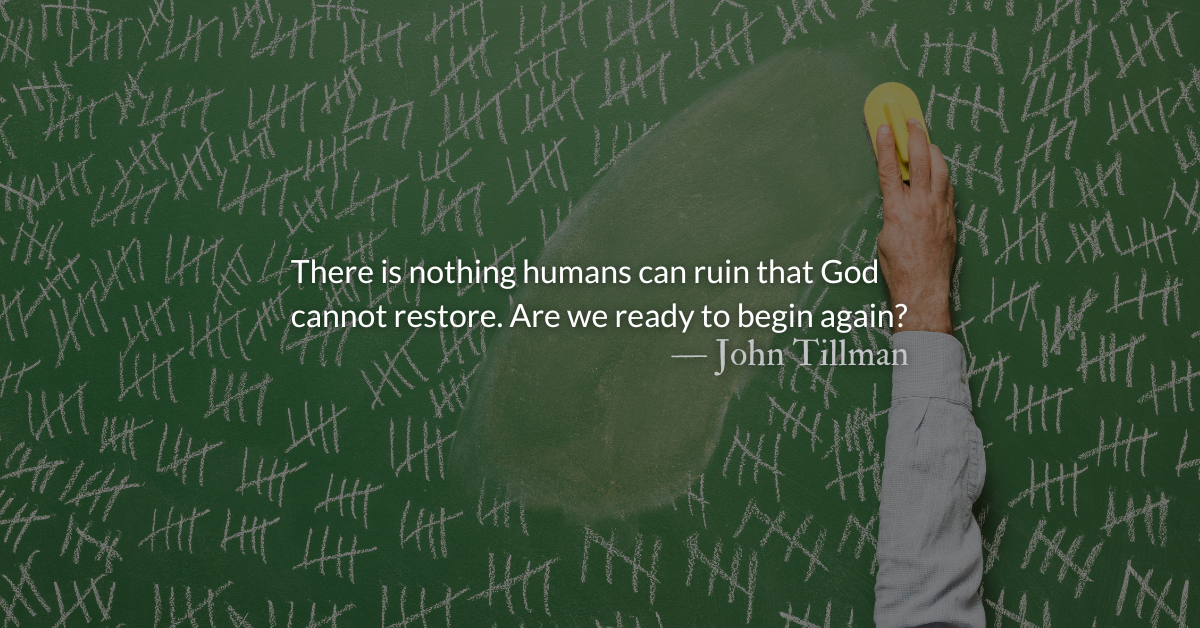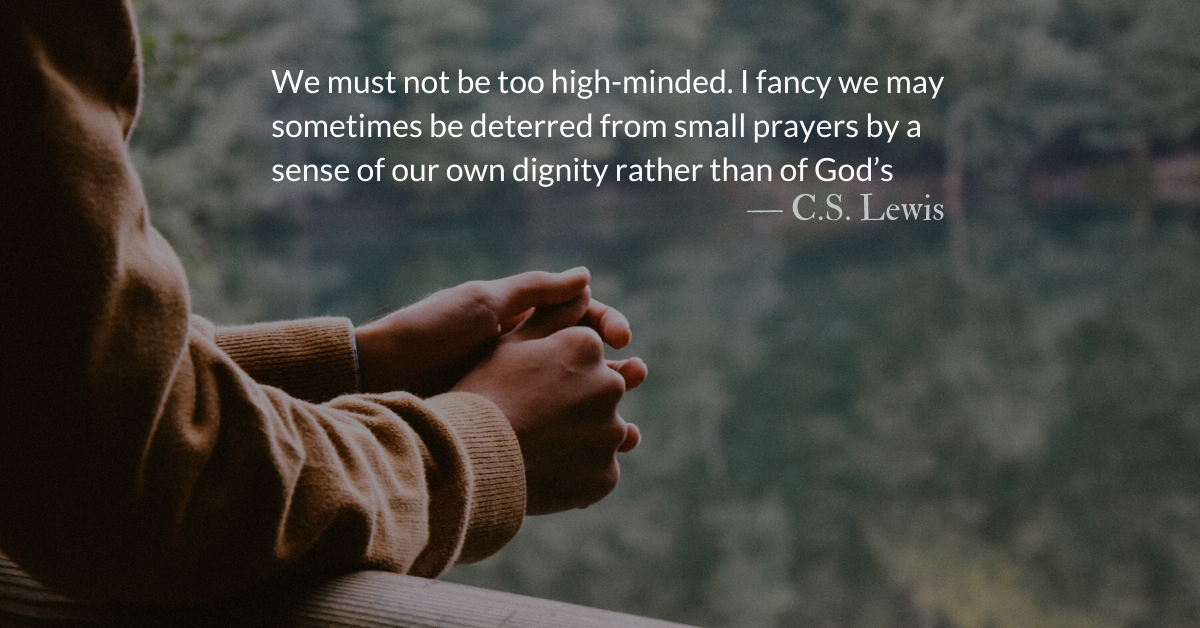Scripture Focus: 1 Chronicles 1.1-4
1 Adam, Seth, Enosh, 2 Kenan, Mahalalel, Jared, 3 Enoch, Methuselah, Lamech, Noah.
4 The sons of Noah:
Shem, Ham and Japheth…
Psalm 79.1
1 O God, the nations have invaded your inheritance;
they have defiled your holy temple,
they have reduced Jerusalem to rubble.
2 They have left the dead bodies of your servants
as food for the birds of the sky,
the flesh of your own people for the animals of the wild.
3 They have poured out blood like water
all around Jerusalem,
and there is no one to bury the dead.
Reflection: Beginning Again
By John Tillman
No act of judgment is the end of the story. God is always ready to begin again.
The banishment from Eden, the flood of Noah, and the destruction of Jerusalem are all referenced in our readings today. Each event is a horrific loss followed by God starting over with the faithful.
Chronicles comes from the pain of the Babylonian exile and looks to the past to see the future. The chronicler recognizes the need to return to the beginning to remember who God is and who humans are. Beginning with creation, the chronicler writes the longest genealogical record in the Bible. The chronicler tells the story of a God willing to start over, no matter how often we fail.
Adam lost Eden. Then he lost two sons. He lost Cain to the beast of sin that made him a murderer. He lost Abel to Cain’s rage. In Seth, God started over.
Noah lost his entire world. Then, he lost a son to an act of rebellion and shame. In Shem, God started over.
Psalm 79 cries out in pain and anger. The psalmist has lost home, the Temple, and many who died. Most likely written from Babylon immediately following the destruction of Jerusalem and the Temple, the writer mourns the loss of both places and people, both destroyed buildings and bodies.
The psalmist’s hot tears and stinging loss are not without hope. The writer foresees a time when mercy will come for the oppressed, freedom for prisoners, salvation for the dying, and judgment for the wicked. God, in the exile, is starting over.
Most of us will never be physically exiled from our homeland or see our families slaughtered or enslaved. We endure other forms of exile and suffering. Losses of friendships, communities, and broken institutions feel like a death. On top of these losses, we have seen abuse and death within our communities of faith, our cities, and our nation. We can all join the psalmist’s lament, “How long, Lord?”
The psalmist assures us that God hears our groans, complaints, cries, and distress. The chronicler assures us that, no matter what has been lost, God is already at work to restore, repair, rebuild, and rescue.
There is nothing humans can ruin that God cannot restore. Are we ready to begin again?
Divine Hours Prayer: The Refrain for the Morning Lessons
Blessed be the Lord! For he has shown me the wonders of his love in a besieged city. — Psalm 31.21
– From The Divine Hours: Prayers for Summertime by Phyllis Tickle.
Today’s Readings
1 Chronicles 1-2 (Listen 11:18)
Psalms 79 (Listen 1:50)
Read more about From Your Nothing…Something Beautiful
Give your scarcity, your vacuum, your past to Jesus. Sense him hovering over it with you. From your nothing Jesus can make something beautiful.
Read more about Lasting Revivals and Normal Idols
Josiah cleansed Israel and Judah from top to bottom, but the next generation went bottom up. The changes didn’t stick. Why?








